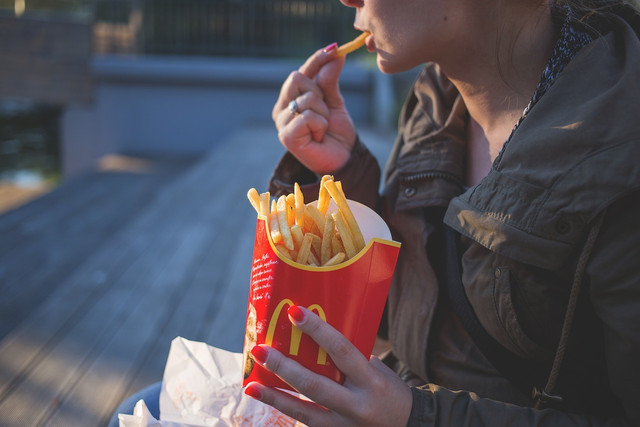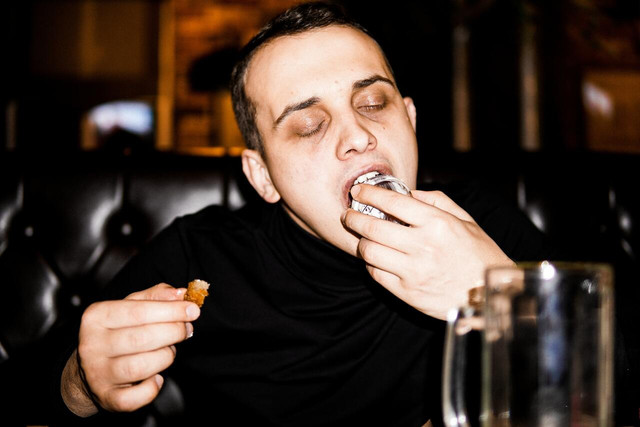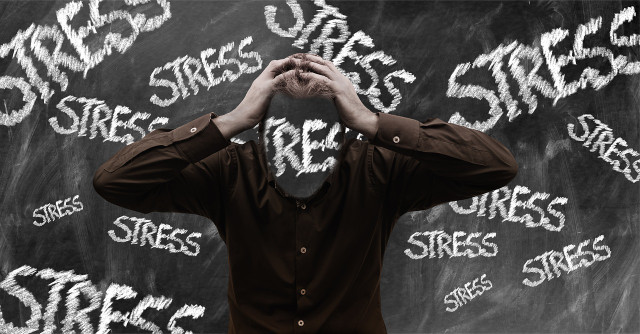Emotional eating is when you use food to distract yourself from your emotions. Understanding why you’re eating can help you get to the root of the problem.
These days, many people are overwhelmed by the stresses of modern life. To cope with the negative feelings, people often turn to food. Having an ice cream after a breakup or a bar of chocolate following a lengthy meeting is understandable. However, sometimes it’s part of an unhealthy cycle of overeating or binge eating.
Emotions can become so tied to eating habits that you automatically reach for a treat whenever you’re angry or stressed — without necessarily thinking about what you’re doing.
Emotional eating becomes a serious problem when we can’t control how much we eat. Moreover, after eating, it can trigger feelings of guilt, disappointment, or sadness. More than 27% of adults in the US report using food to manage stress, and 34% describe it as a regular habitat.
Let’s discuss this in some more depth. Here are some signs that indicate emotional eating and some tips on how to stop them.
What is Emotional Eating?

The simplest definition of emotional eating is when food is used to suppress or soothe negative emotions, like stress, anger, fear, boredom, sadness, and loneliness. The hassles of daily life can trigger negative emotions that lead to emotional eating.
Emotional eating becomes serious when it disturbs your everyday life. According to the American Physiological Association, emotional eating is defined as an eating disorder when attitudes and behaviors related to food evoke pathological disturbances — extreme emotional reactions, emotional instability, and loss of control over emotions.
For this reason and others, it is crucial to recognize the signs of emotional eating and take steps to address them.
How is Emotional Eating Different from True Hunger?



For some, recognizing the difference between true hunger and emotional hunger is difficult. Emotional eating has similar triggers to true hunger, including the smell or sight of certain foods. However, there are some key differences. These differences can be characterized by:
- Onset. Generally, true hunger is gradual. You might become more aware of this hunger because of environmental triggers, but your energy expenditure determines how much you need to eat throughout the day. Emotional hunger can be triggered anytime, even when you’re full. This is because it responds to an emotional rather than physical need.
- Fulfillment. Similarly, true hunger is about fulfilling a certain amount of calories so our bodies have the energy to function. After emotional eating, people may still feel unfulfilled no matter how much they ate. Food only temporarily distracts from the underlying problem.
- Guilt and restrained eating. Another aspect to note is how we react after eating. Without a sense of fulfillment, people often feel guilt or the need to compensate after a binge. They may restrain themselves from eating or over-exercise to make up for overeating. These feelings can signal that we subconsciously recognize that our eating habits are emotional, not physical.
Why Do People Start Emotional Eating?



There are many reasons people turn to emotional eating, including:
- Stress
- Depression
- Sleeping disorders
- Relationship conflicts
- Work or other stressors
- Fatigue
- Financial pressures
Eating can seem like the only way to cope if we don’t have an outlet for our feelings. However, some lesser-known factors also trigger unhealthy eating tendencies, like genetics, social status, and underlying health issues. Certain socio-demographic groups are more prone to emotional eating than others.
Studies also show that conditions like depression, sleep disorders, and genetic disposition lead to a higher tendency for emotional eating. However, regardless of what factors trigger emotional eating, there are other ways to respond to the feelings that trigger emotional hunger.
How to Reduce and Stop Unhealthy Eating Habits



The most important way to address emotional eating is through introspection. Introspection is about understanding the subconscious and conscious drives that mask the reasons why we eat. There are a few ways to do this:
- Try mindfulness and meditation. There is a large amount of literature online supporting the use of mindfulness in coping with emotional eating. Researchers suggest breathing exercises and meditation to calm your emotions before eating.
- Keep a food diary. Write down what you eat, how much you eat, when you eat, how you feel when you eat and how hungry you are. Over time, you might see patterns that reveal the connection between mood and food.
- Tame your stress. If stress contributes to your emotional eating, try a stress management technique, like yoga, exercise, or deep breathing.
- Have a hunger reality check. Is your hunger physical or emotional? You’re probably not hungry if you ate just a few hours ago. Give the craving time to pass.
- Get support. You’re more likely to give in to emotional eating if you lack a good support network. Lean on family and friends, or consider joining a support group.
- Fight boredom. Instead of snacking when you’re not hungry, distract yourself and substitute a healthier behavior. Take a walk, watch a movie, play with your cat, listen to music, read, surf the internet or call a friend.
- Take away temptation. Don’t keep hard-to-resist comfort foods in your home. And if you feel angry or blue, postpone your trip to the grocery store until you have your emotions in check.
- Don’t deprive yourself. You can limit calories too much when trying to stop over-eating or emotional eating. You shouldn’t have to eat the same foods repeatedly or banish all treats. That may actually increase your food cravings, especially in response to emotions. Eat satisfying amounts of healthier foods, enjoy an occasional treat and get plenty of variety to help curb cravings.
- Snack healthier. If you feel the urge to eat between meals, choose a healthy snack, such as fresh fruit, vegetables with low-fat dip, nuts, or unbuttered popcorn. Or try lower-calorie versions of your favorite foods to see if they satisfy your craving.
- Learn from setbacks. If you have an emotional eating episode, forgive yourself and start fresh the next day. Try to learn from the experience and plan how to prevent it in the future. Focus on the positive changes you’re making in your eating habits, and give yourself credit for making changes that’ll lead to better health.
Takeaways
Occasionally using food as a pick-me-up, reward, or celebration isn’t necessarily bad. However, when eating is your primary emotional coping mechanism or when your first impulse is to open the refrigerator whenever you’re stressed, lonely, or bored, you can get stuck in an unhealthy cycle. These cycles leave the real feeling or problem unaddressed. Anyone can develop an eating disorder. It doesn’t matter your age, gender, cultural or racial background. So, seek professional help if you feel you are losing control of your eating habits.
Read more:
- Learning Self-Love: How to be Good to Yourself and Why it Matters
- Balanced Meal Tips: 10 Rules for a Healthy Diet
- Body Positivity: 5 Steps Towards A Positive Body Image
Do you like this post?








